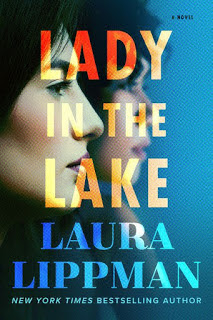D.W. Buffa's recent novel is
The Privilege, the ninth legal thriller involving the defense attorney Joseph Antonelli. The tenth,
Lunatic Carnival, will be published soon. He has also just published
Neumann's Last Concert, the fourth novel in a series that attempts to trace the movement of western thought from ancient Athens, in
Helen; the end of the Roman Empire, in
Julian's Laughter; the Renaissance, in
The Autobiography of Niccolo Machiavelli; and, finally, America in the twentieth century, in
Neumann's Last Concert.
Buffa writes a monthly review for the Campaign for the American Reader that we're calling "Third Reading." Buffa explains. "I was reading something and realized that it was probably the third time that I knew it well enough to write something about it. The first is when I read it when I was in college or in my twenties, the second, however many

years later, when I wanted to see if it was as good as I remembered, and the third when I knew I was going to have to write about it."
Buffa's
"Third Reading" of the unforgettable Jorge Luis Borges begins:
The great Argentine writer Jorge Borges put into the mouth of one of his inimitable characters a line that has never left me: “I have often begun the study of metaphysics but have always been interrupted by happiness.” I cannot remember in which of his many short stories I first read it. I know it was a short story because Borges never wrote, and almost never read, a novel, on the obvious, but still dubious, ground that to devote five hundred pages to something that could be explained in a conversation of not more than five minutes was to forget the importance of time. Borges often spent weeks, if not longer, on a story it would not take more than five minutes to read. I do not know how long he took to write “I have often begun the study of metaphysics but have always been interrupted by happiness.” I remember the line; I do not remember the story. And the stories I do remember I seem not to have remembered the way I thought I remembered them. This may not be my fault. Borges may have done something to make sure that the stories are no longer what they were.
When Borges was a young boy in Bueno Aires, he “used to marvel that the letters in a closed book did not get scrambled and lost overnight.” He may have wondered, when he was older, why he assumed they did not. In at least some of his stories, things go missing, things change, change with time, change with the memories of men, change by accident, or, sometimes, change on purpose. In “Tlon Uqbar, Orbis Tertius,” a story the title of which tells you...[read on]
About Buffa's recent novel
Neumann’s Last Concert, from the publisher:
Neumann’s Last Concert is a story about music and war and the search for what led to the greatest evil in modern history. It is the story of an American boy, Wilfred Malone, who lost his father in the early days of the Second World War and a German refugee, Isaac Neumann, the greatest concert pianist of his age when he lived  in Berlin, but who now lives, anonymous and alone, in a single rented room in a small town a few miles from San Francisco.
in Berlin, but who now lives, anonymous and alone, in a single rented room in a small town a few miles from San Francisco.
Wilfred has a genius for the piano, “a keen curiosity not yet corrupted by vanity” and “a memory that forgot nothing essential.” Neumann, alone in his room, is constantly writing, an endless labyrinth of questions and answers, driving him farther and farther back into the past, searching for the causes, searching for the meaning, of what happened in Germany, trying to understand what had led him, a German Jew, to stay in Germany when he could have left but instead continued to perform right up to the night that during his last concert they took his wife away.
Neumann’s Last Concert is a novel about the great catastrophe of the 20th century and the way in which music, great music, preserves both the hope of human decency amidst the carnage of human insanity and the possibility of what human beings might still accomplish.
Visit
D.W. Buffa's website.
Third reading: The Great Gatsby.
Third reading: Brave New World.
Third reading: Lord Jim.
Third reading: Death in the Afternoon.
Third Reading: Parade's End.
Third Reading: The Idiot.
Third Reading: The Decline and Fall of the Roman Empire.
Third Reading: The Scarlet Letter.
Third Reading: Justine.
Third Reading: Patriotic Gore.
Third reading: Anna Karenina.
Third reading: The Charterhouse of Parma.
Third Reading: Emile.
Third Reading: War and Peace.
Third Reading: The Sorrows of Young Werther.
Third Reading: Bread and Wine.
Third Reading: “The Crisis of the Mind” and A Man Without Qualities.
Third reading: Eugene Onegin.
Third Reading: The Collected Works of Thomas Babington Macaulay.
Third Reading: The Europeans.
Third Reading: The House of Mirth and The Writing of Fiction.
Third Reading: Doctor Faustus.
Third Reading: the reading list of John F. Kennedy.
Third Reading: Jorge Luis Borges.
--Marshal Zeringue








.jpg)






















